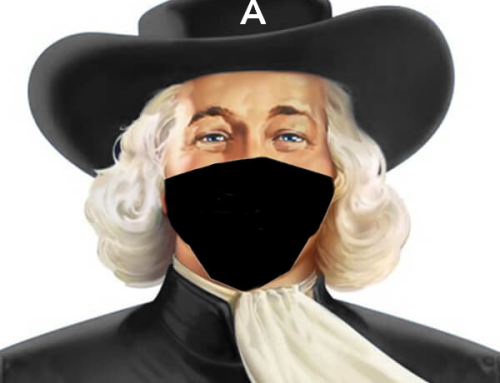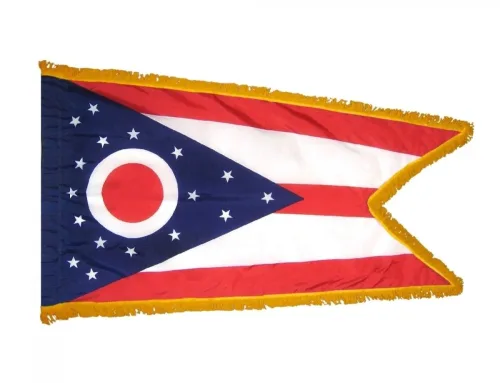by Daniel J. McGraw
In 2013, the number of law enforcement officers killed in this country in the line of duty by firearms (33) was the lowest since 1887, when the U.S. population was about 240 million less than it is now. And if you include those killed in the line of duty in traffic accidents and other job-related causes, the number of officers killed in 2013 (111) was the lowest since 1959.
Though the numbers of officers killed in the line of duty are up slightly this year, it is still a basic fact that law enforcement agents are in less danger now of losing their lives than they probably ever have been in this country. Some say this is thanks to more bulletproof vests and more military-style gear and better training in dealing with the violent criminals they see in their work.
And if you follow that reasoning, maybe that’s why the violent crime rate has dropped so dramatically as well. Between 1993 and 2012, the violent crime rate (homicide, robbery, rape, and aggravated assault) in the United States dropped by 48 percent.
So it is a safer world and there are probably many cultural and historical and technical and economic reasons for that. Crime rates run in cycles, and some criminologists have theorized that technological innovations have played a role in bringing it down to its current low, because the young and raucous are too busy staring at their cell phones to go out and rob convenience stores. And law enforcement policies do have an influence on the outcomes.
But if the world is safer and police are dying less in the line of duty, you might figure that the numbers of those killed by police would be down too. Though it’s hard to get straight numbers on “justifiable homicides” by police (reporting is often arbitrary and no time here to explain), the best estimate is that people killed by law enforcement number about 400 a year. That number has been fairly consistent for about a decade.
Of course I am bringing this up because of the killing of Tamir Rice Saturday afternoon in a park on the west side of Cleveland. He was 12-years-old, African-American, and had a BB gun. Police thought it was a real gun, and shot and killed him when he reached for it in his waist band. Maybe it looked like a real gun. Maybe he looked like he was an adult. We don’t know right now. Maybe we will never really know. But the earliest explanation was that the 12-year-old was shot and killed because he didn’t follow police orders to put the BB gun on the ground.
These police shooting incidents are piling up in this safer world. There was the August shooting of 18-year-old Michael Brown in Ferguson, Missouri (which, as the world knows, resulted yesterday in no indictment of the officer who killed him). There was the 22-year-old man shot dead in September by police in Utah because he was carrying a toy sword. Another 22-year-old shot and killed for carrying an air rifle in an Ohio Walmart. Another young man in Utah shot and killed by police in a 7-Eleven when he didn’t hear their orders to stop down and put his hands in the air because he was wearing headphones (he fit the description of another man they were looking for).
And then of course there was the 2012 car chase in Cleveland, where police thought two homeless, unarmed dope heads were so dangerous that 60 cars joined in the chase. One hundred thirty-seven shots were fired into their vehicle when they were cornered in a school parking lot, with an amazing 49 shots fired by one officer, including at least 15 as he stood on the hood of the car and fired through the front windshield. The city of Cleveland settled with the families of the man and woman killed for $3 million this week.
Some say these incidents are racially motivated, others say is the cops are poorly trained. But while there is a clear racial pattern to the uptick in police shootings, I don’t think any white cops come to work and say to themselves that they are going to shoot some black boys today. But I do think some cops do come to work thinking they are better than the people they are charged to protect, because the balance of who the police are accountable to – the public or the police themselves – has gotten out of whack. And in some respects, we as a society are to blame.
Police departments are a dichotomy of sorts, being both a community asset and a necessary evil. At times we wished we lived in a world where we did not need them, and at other times we are happy they are there. We hate them for writing us speeding tickets and we love them when they haul off the drunken neighbor for beating his kids. And for us and them, it is a job they do, a job we want them to do, a job they like doing, and a job that certain types do well. But it is, first and foremost, a job.
But in the past few decades, especially after the 9/11 attacks, we started to refer to them with superlatives, calling them “heroes” and “first responders.” Nothing wrong with honoring people, but it is part of the human condition that too much praise carries with it some unintended consequences. And one of the problems with all this hero-worship is that many police departments figure that “heroes” don’t have to answer to anyone.
Police have militarized themselves with night-scope rifles and riot helmets and tanks, because they said they need all that equipment and we all just go along with what the good guys want. Police insisted that they needed Tasers to control people, even though billy clubs did pretty much the same thing and didn’t kill anyone with high voltage. In short, the “heroes” tell us what they want, and to leave them alone because they know what is best.
This isn’t anything new. Cops were once called “pigs,” and at other times they were seen as a bunch of fat guys cashing their checks and waiting for retirement. That wasn’t deserved. But now the pendulum has swing to the other extreme, and police who shoot first and ask questions later are not asked why. And if they are asked, the answer is usually along the lines of, “They didn’t do what I told them to do so they had it coming.”
I don’t believe it is all police or even most who feel this way. But there has been a slow internalization of this attitude over time, and we as a society must step up, and speak up, to rein it in. People who are not a violent threat do not have to die because they did not follow the exact orders of authority. Heroes don’t kill people because they had it coming. Heroes save lives.
Dan McGraw is Senior Writer at Belt.
Image by Raymond Wambsgans under a Creative Commons license.
Support paywall free, independent Rust Belt journalism — and become part of a growing community — by becoming a member of Belt.







“the 12-year-old was shot and killed because he didn’t follow police orders to put the BB gun on the ground.”
is this correct? because putting the BB gun on the ground would require that he reach for the gun in his waistband. so if it’s correct, they killed him for following directions. that wouldn’t surprise me…but it would surprise me if the police actually reported that’s what happened.
Jeffrey, at this point there are differing accounts as to what happened and the City of Cleveland has yet to clarify things. One account says police asked him to put his hands in the air and he grabbed the BB gun from his waist at that time and they shot him. The other account said he was waving the BB gun around and police told him to put it on the ground and when he didn’t, they shot him. Thanks for reading and commenting.
Really appreciate this take on the police’s role–and our own–in these unfortunate shootings. Thanks for presenting this perspective!